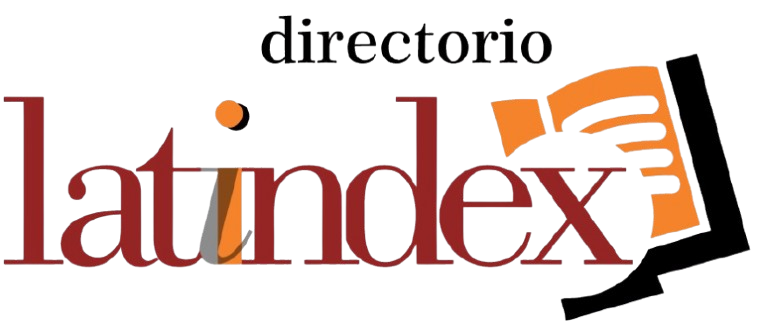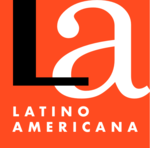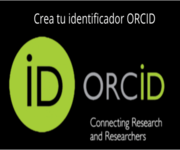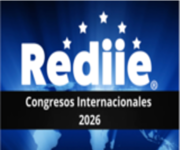Modelos Educativos en Universidades Latinoamericanas: Implicaciones para la Innovación Pedagógica
Palabras clave:
Modelo educativo, Educación superior, Innovación pedagógica, Competencias genéricas, InternacionalizaciónResumen
Este estudio analiza comparativamente los modelos educativos de cinco universidades latinoamericanas, manteniendo el anonimato institucional. Se aplicó el cuestionario CEMEU, que considera cuatro dimensiones: enfoque pedagógico, competencias genéricas, internacionalización e innovación y tecnología educativa. Los hallazgos muestran fortalezas en el aprendizaje activo, el desarrollo de competencias transversales y la disponibilidad de recursos tecnológicos. No obstante, se identifican limitaciones en la autonomía estudiantil, la integración sistemática de tecnologías emergentes y la internacionalización, especialmente en convenios de doble titulación. En conjunto, los resultados sugieren que, aunque las instituciones avanzan hacia modelos centrados en el estudiante y pertinentes al siglo XXI, aún existen áreas de mejora para consolidar su proyección global y sostenible.
Descargas
Citas
Birtwistle, T., & Wagenaar, R. (2020). Re-Thinking an Educational Model Suitable for 21st Century Needs. European Higher Education Area: Challenges for a New Decade. https://doi.org/10.1007/978-3-030-56316-5_29
Bond, M., Khosravi, H., De Laat, M., Bergdahl, N., Negrea, V., Oxley, E., Pham, P., Chong, S., & Siemens, G. (2024). A meta systematic review of artificial intelligence in higher education: a call for increased ethics, collaboration, and rigour. International Journal of Educational Technology in Higher Education, 21, 1-41. https://doi.org/10.1186/s41239-023-00436-z
Bowen, G. (2009). Document analysis as a qualitative research method. Qualitative Research Journal, 9(2), 27–40. https://doi.org/10.3316/QRJ0902027
Crispi, P. (2020). How higher education can develop generic competences. IJAEDU- International E-Journal of Advances in Education, 6(16), 23-29. https://doi.org/10.18768/ijaedu.616003
Crompton, H., & Burke, D. (2023). Artificial intelligence in higher education: the state of the field. International Journal of Educational Technology in Higher Education, 20, 1-22. https://doi.org/10.1186/s41239-023-00392-8.
De Wit, H. (2020). Internationalization of higher education: The need for a more ethical and qualitative approach. Journal of International Students, 10(1). https://doi.org/10.32674/jis.v10i1.1893
De Wit, H., & Altbach, P. G. (2021). Internationalization in higher education: Global trends and recommendations for its future. Policy Reviews in Higher Education, 5(1), 28–46. https://doi.org/10.1080/23322969.2020.1820898
Demyanchuk, Y. (2022). Qualitative and quantitative methods of official document research. SKASE Journal of Theoretical Linguistics, 19(2), 99–116. http://www.skase.sk/Volumes/JTL51/06.pdf
Dignum, V. (2021). El papel y los desafíos de la educación para una IA responsable. Revista de Educación de Londres, 19(1). https://doi.org/10.14324/lre.19.1.01
Fan, O., Zheng, L., & Jiao, P. (2022). Artificial intelligence in online higher education: A systematic review of empirical research from 2011 to 2020. Education and Information Technologies, 27, 7893 - 7925. https://doi.org/10.1007/s10639-022-10925-9
García-González, A. (2023). Modelos educativos en América Latina: Innovación, internacionalización y calidad en la educación superior. Revista Iberoamericana de Educación Superior, 14(41), 45–63. https://doi.org/10.22201/iisue.20072872e.2023.41.0003
Giesenbauer, B., & Müller-Christ, G. (2020). University 4.0: Promoting the transformation of higher education institutions toward sustainable development. Sustainability, 12(8), 3371. https://doi.org/10.3390/su12083371González-Pérez, L., & Ramírez-Montoya, M. (2022). Components of Education 4.0 in 21st Century Skills Frameworks: Systematic Review. Sustainability. https://doi.org/10.3390/su14031493https://www.learntechlib.org/primary/p/29544/
Koehler, M. J., & Mishra, P. (2009). What is technological pedagogical content knowledge? Contemporary Issues in Technology and Teacher Education, 9(1). https://citejournal.org/volume-9/issue-1-09/general/what-is-technological-pedagogicalcontent-knowledge
Mishra, P. & Koehler, M. J. (2006). Technological Pedagogical Content Knowledge: A Framework for Teacher Knowledge. Teachers College Record, 108(6), 1017–1054. https://rediie.cl/wp-content/uploads/Mishra-Koehler.pdf
Ramírez-Montoya, M. S., & Portuguez-Castro, M. (2024). Educational innovation and digital transformation in higher education: Latin American perspectives. Springer. https://doi.org/10.1007/978-3-031-39918-7
Santander, J. A. (2020). Educational model for the development of higher education in the Latin American society. In C. Urrea (Ed.), Proceedings of the MIT LINC 2019 Conference (EPiC Series in Education Science, Vol. 3, pp. 204–209). EasyChair. https://easychair.org/publications/open/8v2Z?utm_source=consensus
Tran, L. T., Jung, J., Unangst, L., & Marshall, S. (2023). New developments in internationalisation of higher education. Higher Education Research & Development, 42(5), 1033–1041. https://doi.org/10.1080/07294360.2023.2216062
Vera, F. (2021). Competencias blandas para la fuerza laboral del siglo XXI. Transformar, 2(2), 20–29. https://revistatransformar.cl/index.php/transformar/article/view/20
Vera, F. (2023a). Faculty members’ perceptions of artificial intelligence in higher education: a comprehensive study. Transformar, 4(3), 55–68. https://revistatransformar.cl/index.php/transformar/article/view/103
Vera, F. (2023b). Infusing Soft Skills in Higher Education: Key to the Development of Advanced Human Capital. Transformar, 4(2), 47–65. https://revistatransformar.cl/index.php/transformar/article/view/92
Vera, F. (2024). Reimagining Higher Education: The Necessity for Transformational Change. Transformar, 5(3), 23–35. https://revistatransformar.cl/index.php/transformar/article/view/133
Vera, F. (2024b). Desarrollo de competencias genéricas en carreras de Ingeniería: Análisis crítico de propuestas formativas en Chile. Transformar, 5(1), 37–60. https://revistatransformar.cl/index.php/transformar/article/view/116
Vera, F. (2024b). Cuestionario para Evaluar Modelos Educativos Universitarios (CEMEU). Proyecto de Investigación Colaborativa Internacional (PICI). Red Internacional de Investigadores en Educación – REDIIE. https://rediie.cl/cemeu/
Vera, F., & Rodríguez-Flórez, P. (2025). Análisis comparativo de modelos educativos en universidades latinoamericanas: implicaciones para la innovación pedagógica. En Libro de Actas del V Congreso Internacional de Tecnología, Aprendizaje y Educación (CITAE 2025), 83-92. Red Internacional de Investigadores en Educación (REDIIE). ISSN 2735-6590. https://rediie.cl/wp-content/uploads/Libro_Actas_CITAE2025-83-92.pdf
Vera, F., Tejada, E., & Morales, M. (2022). Desarrollo de competencias genéricas en estudiantes de Licenciatura en Lengua y Literatura Hispanoamericana. Transformar, 3(1), 14–25. partir de https://revistatransformar.cl/index.php/transformar/article/view/49
Weber, R. P. (1990). Basic Content Analysis (2nd ed.). SAGE Publications.












